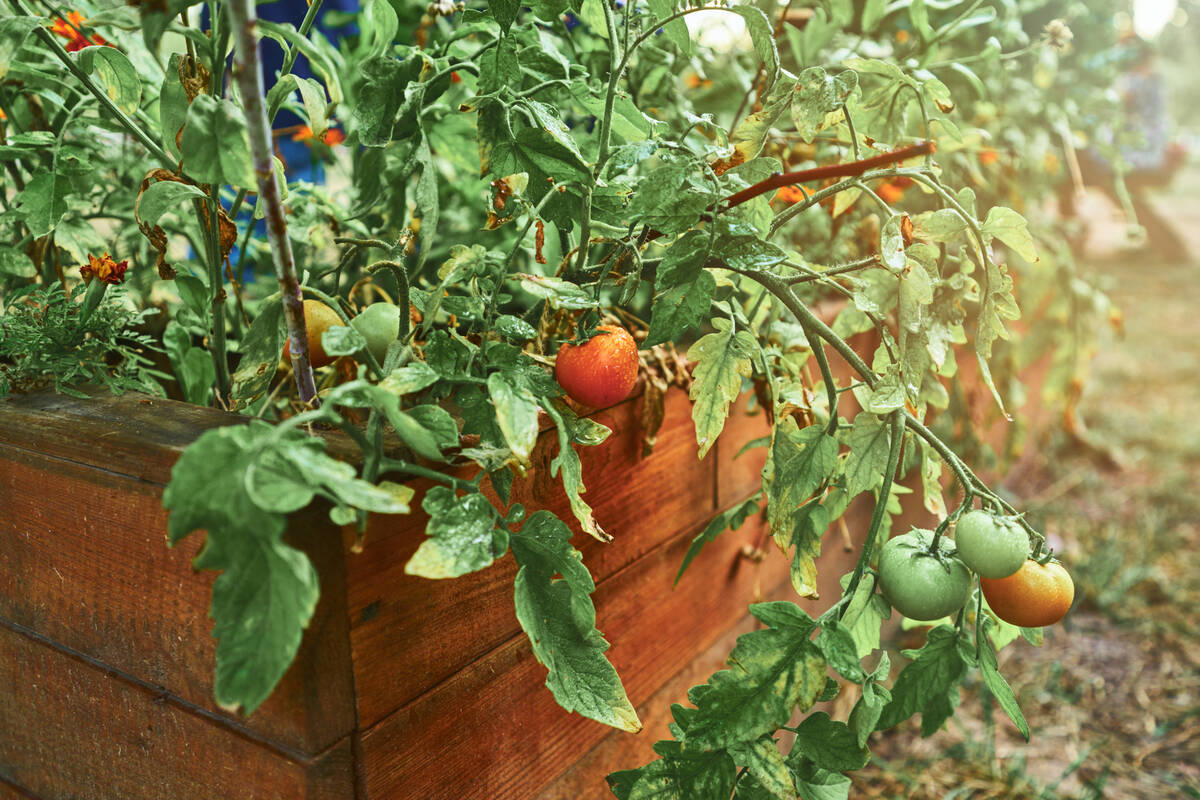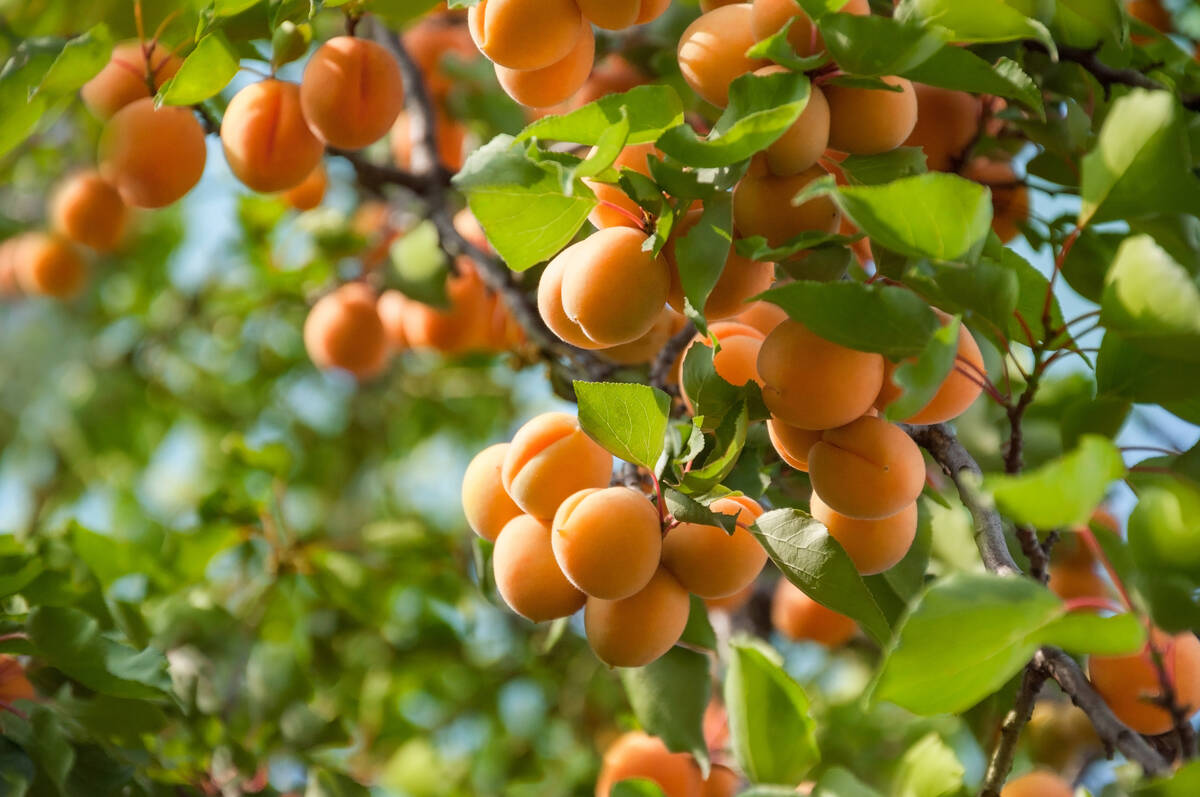How can I improve my vegetable garden’s output?
Q: We have a raised bed vegetable garden. For the last few years our tomatoes, zucchini and eggplants have produced little to no fruit. We’ve fed the soil, used mulch to maintain moisture and increased the water. How can we improve our yield?
A: First, make sure the varieties you are using are compatible for the hot desert. For instance, for tomatoes try using Champion, Early Girl, Jetstar, Big Boy or anything else that avoids the high heat. Tomatoes stop producing fruit when temperatures get above 95 degrees.
Second, enrich the soil. Every year or two add a thin layer of compost to the soil and rototill or dig it in. The soil for vegetables should be a chocolate brown to coffee brown (with creamer in it) in appearance. It should easily accept a garden trowel (or your hands) for digging. Otherwise, add compost and mix it in.
Third, if you are using a rich compost (amends the soil and adds fertilizer), there is no need for fertilizing, just add phosphorus when you are planting. Adding a rich compost and fertilizer may delay fruiting. If you are using only a weak compost (changes how the soil drains but adds no fertilizer) for amending the soil, then fertilize about six to eight weeks after planting.
Judge vegetables and when to fertilize by their leaf color. (Dark green: Don’t fertilize. Light green: Fertilize. When in doubt, don’t fertilize.) At the most you should be adding fertilizer every eight to 10 weeks.
Q: My wife and I recently purchased a home in Las Vegas. It is on a little less than an acre and has access to well water. Currently, it is mostly just dirt with a few pine trees. We want to plant an orchard with a lot of different fruit trees that will grow well. What are your suggestions?
A: First of all, I would not plant anything during this heat unless it is very early in the morning when it’s cooler. This includes fruit trees.
Plant what you will eat. If that’s peaches, then plant peaches. Or maybe it’s apricots. Or plums. Too many people plant Meyer lemon. What can you do when 200 pounds of lemons are ready during three or four weeks of January or February? (Your neighbors will see you coming with a bowl of lemons and not answer the door!)
Our winter weather can be cold (freezing) at times (freezing), and warm (not freezing) at others. There are fruit trees that survive the cold weather by dropping their leaves (we call these temperate fruit trees). Then there are subtropical fruit trees such as citruses. They prefer the nonwinter temperatures but survive winter weather.
The average killing temperature during the winter of temperate fruit trees is about 15 degrees. The average killing winter temperature of subtropical citrus is about 28 degrees.
Some temperate tree crops tolerate our winter cold better than others (apples and pears, for instance).
Q: Can lawn trimmings be used for vegetable garden mulch if there are a lot of African sumac tree leaves mixed in? I’ve heard the tree has some sort of poison and didn’t want the poison to contaminate the vegetables I’m growing. If not for the leaves, which fall onto the lawn almost all year, I like to put my grass clippings on the garden.
A: Go ahead and compost African sumac leaves. I could find no evidence for it being poisonous.
I have had a lot of complaints about this tree over summer leaf drop and easy seed germination, however. Botanists fear it will choke out native mesquite in moist soil. Also, it can cause problems in wet areas or near waterways. I would suggest not planting it.
It may be mildly poisonous, but not toxic.
There is a poison sumac that has a bad reputation, and it is in the same family. Poison sumac is considered the most toxic plant in the U.S. It grows only in super wet areas in the Eastern U.S.
Most plants in that family are not poisonous (think: cashews, pistachios and mango).
Q: Some of my iceberg roses have leaves turning brown. Is that too much/too little water or just the extreme temperatures? Does it matter which time of day I water? I normally water in the morning, but should I instead water during the hottest part of the day? If I normally water Monday, Wednesdays, and Fridays, should I spread the watering out but keep the total weekly minutes the same?
A: Roses will do that in the heat of summer. For all roses, that is their winter. If you are from a cold climate like the upper-tier states in the U.S.: We are south enough to be in a transition state, one that is confused about whether our climate is tropical or temperate.
I prefer to water so that the plant goes into the heat of the day hydrated. But there are no advantages except to fruit trees in production.
Make sure you have about 2 inches of mulch on the surface of the soil. Under that mulch, the soil should be cooler, darker and weed-free. If it’s not darker, mix in compost to make it darker.
Roses like soil that is moderate in the amounts of organics in it (the color should be darker than the surrounding soil, at least a mocha color).
If it has fertilizer in it (rich compost) that is all the fertilizer it needs. Wait about a month after it is applied to add any more fertilizer. If it is a structural compost only, then fertilize your roses.
Roses should be fertilized three or four times during the year.
Bob Morris is a horticulture expert and professor emeritus of UNLV. Visit his blog at xtremehorticulture.blogspot.com. Send questions to Extremehort@aol.com.


















